Introduction
Emotional balance is key to living a healthy and fulfilling life. However, each individual manages their emotions differently, influenced by their personality, experiences, and beliefs. The Enneagram, an ancient system that categorizes human personalities into nine distinct types, offers a unique perspective on how we handle our emotions. By understanding how each Enneagram type reacts to emotional challenges, you can better navigate your own feelings and those of others.
In this article, we explore emotional balance through the lens of the Enneagram, analyzing how each type manages emotions. We’ll delve into the emotional strengths and challenges of each type while providing strategies to achieve optimal emotional balance.
The Enneagram and Emotional Management: An Overview
The Enneagram is a powerful tool for self-awareness that helps us understand the inner motivations and emotional behaviors of each individual. It describes nine personality types, each with distinct characteristics, deep motivations, and defense strategies for managing emotions. By knowing your Enneagram type, you can better identify your emotional patterns and work on your weaknesses to achieve better emotional balance.
Here’s an overview of the nine Enneagram types and how each approaches emotional management.
Type 1: The Perfectionist
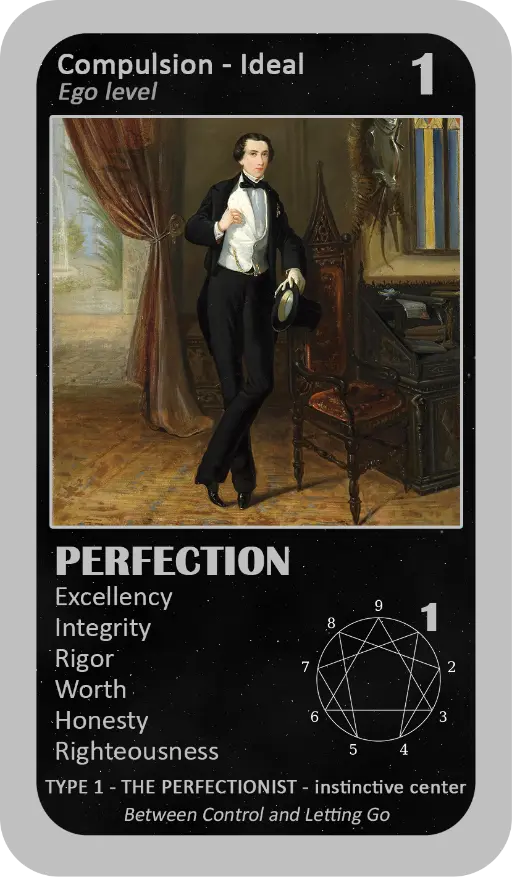
Type 1 individuals are driven by the desire to do what is right and constantly strive for perfection. Their primary emotional challenge is frustration, often directed at themselves and others when things don’t meet their high expectations.
Emotional Management
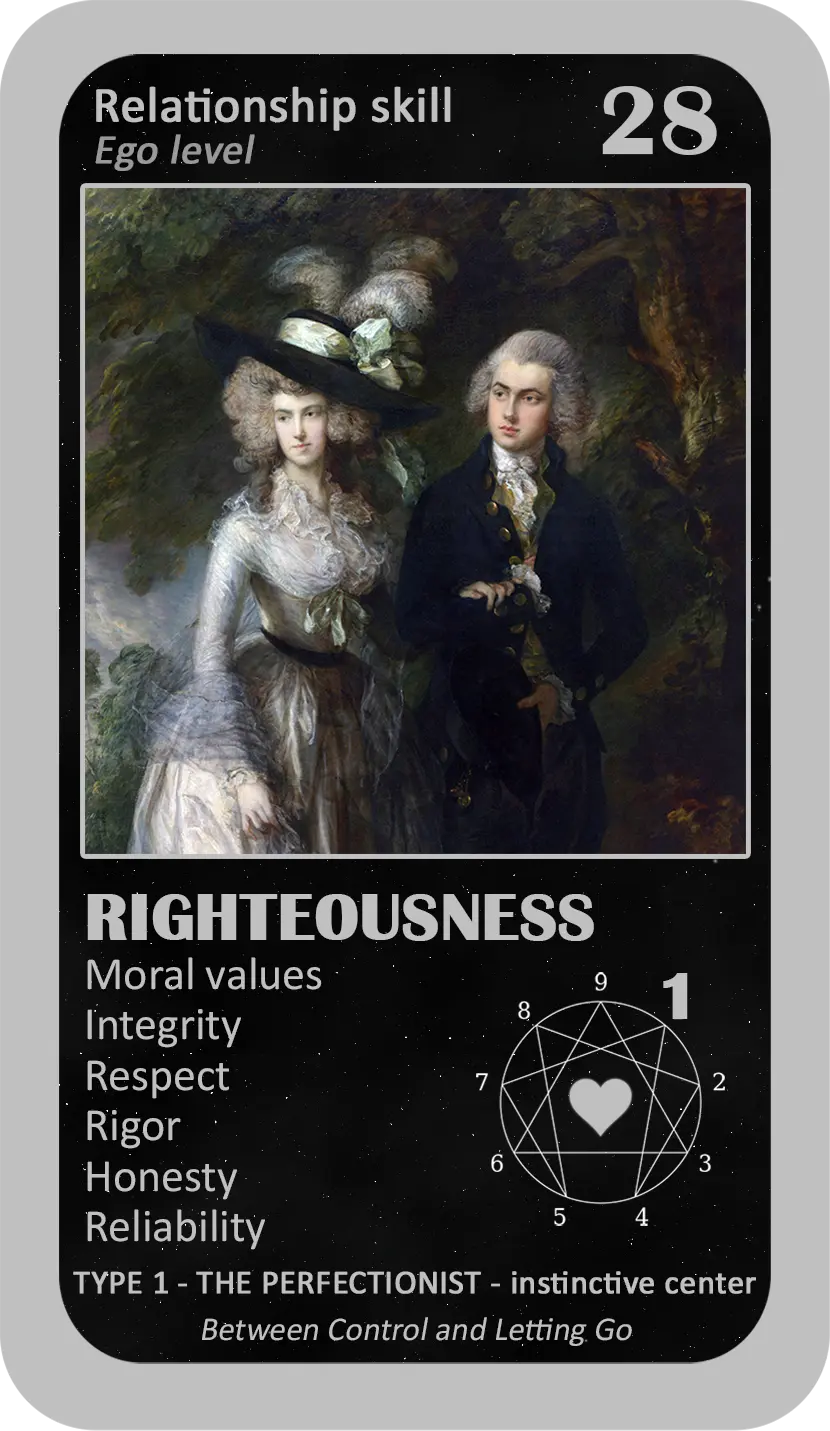
Strengths: Perfectionists are excellent at suppressing negative emotions by channeling them into productive actions. Their strong sense of ethics and duty helps them remain calm in difficult situations.
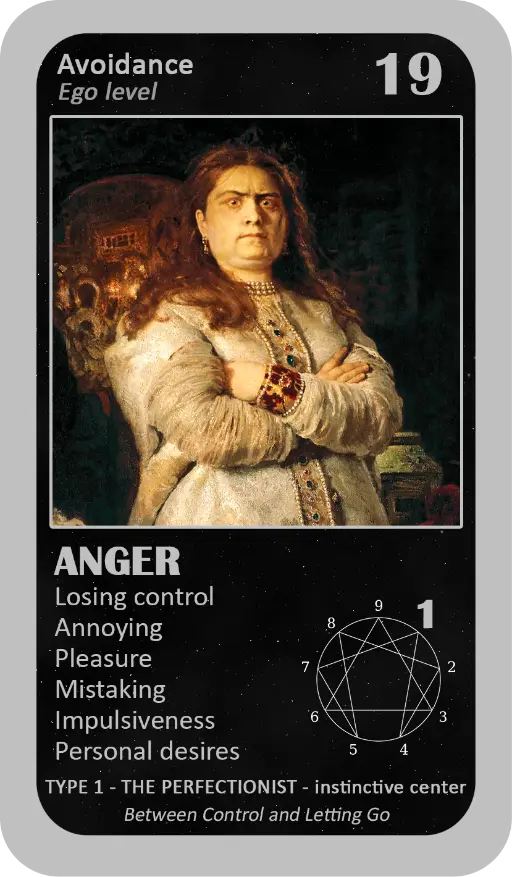
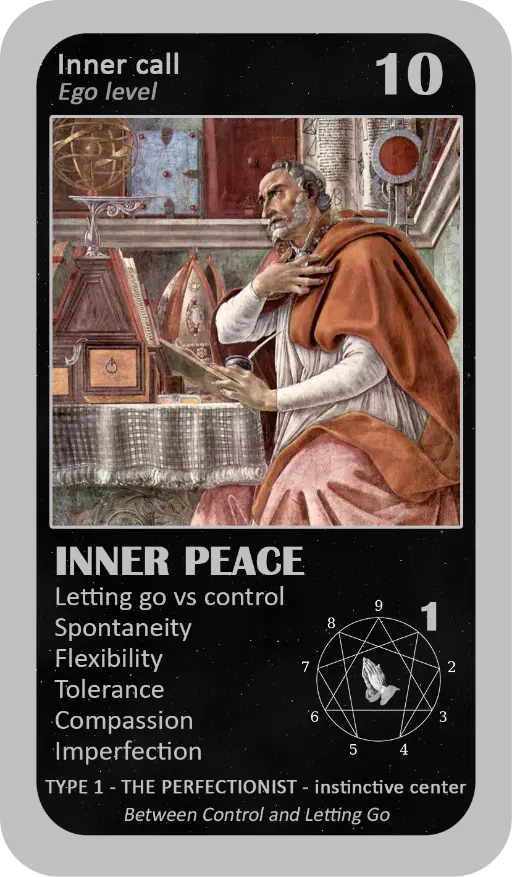
Challenges: Their tendency to harshly judge themselves can lead to resentment and repressed emotions, creating internal pressure. Perfectionists must learn to let go and accept that perfection is rarely attainable.
Strategies for Emotional Balance

- Practice self-compassion: Recognize your efforts and successes without focusing on imperfections.
- Accept mistakes: View them as learning opportunities rather than failures.
Type 2: The Helper
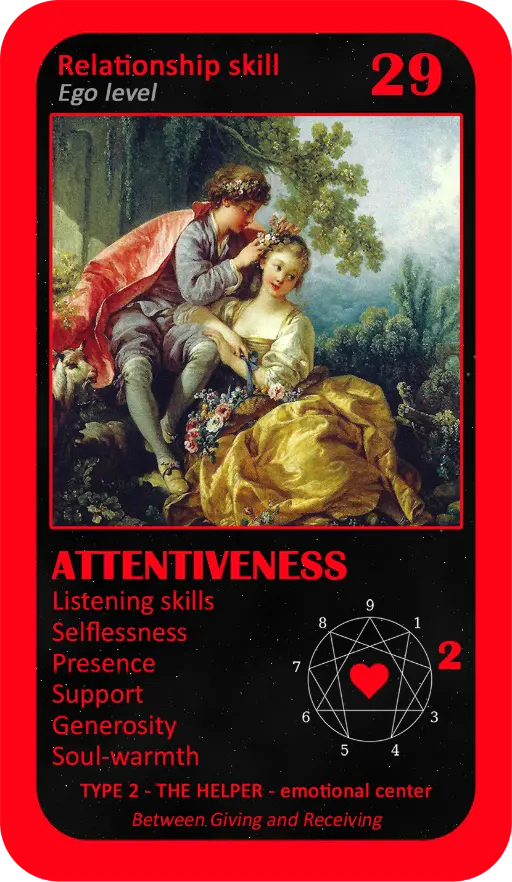
Type 2 individuals are motivated by the need to be loved and appreciated by helping others. Their emotional management often relies on altruism, but this can turn into emotional dependency when they feel unrecognized.
Emotional Management

Strengths: Helpers are highly empathetic and understand the emotional needs of others. They express their feelings openly and lovingly.
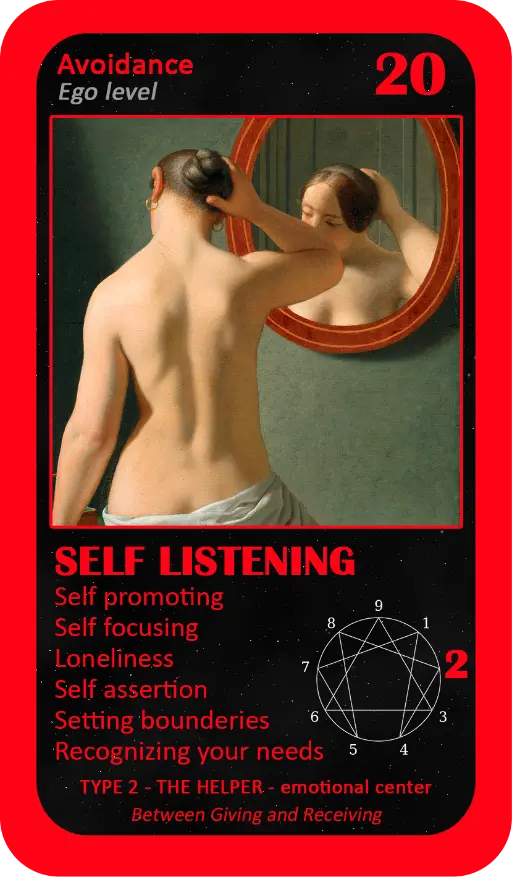
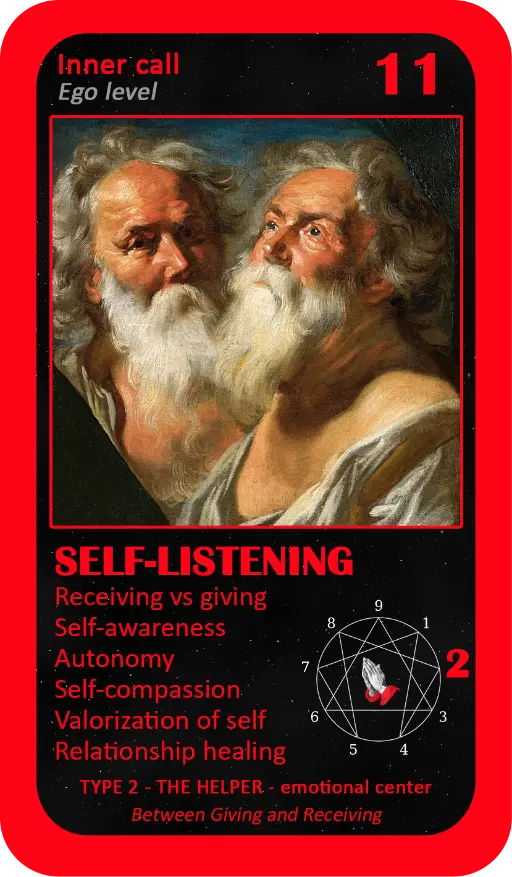
Challenges: Their biggest challenge is often not listening to their own needs, fearing they’ll appear selfish. This can lead to frustration and resentment.
Strategies for Emotional Balance
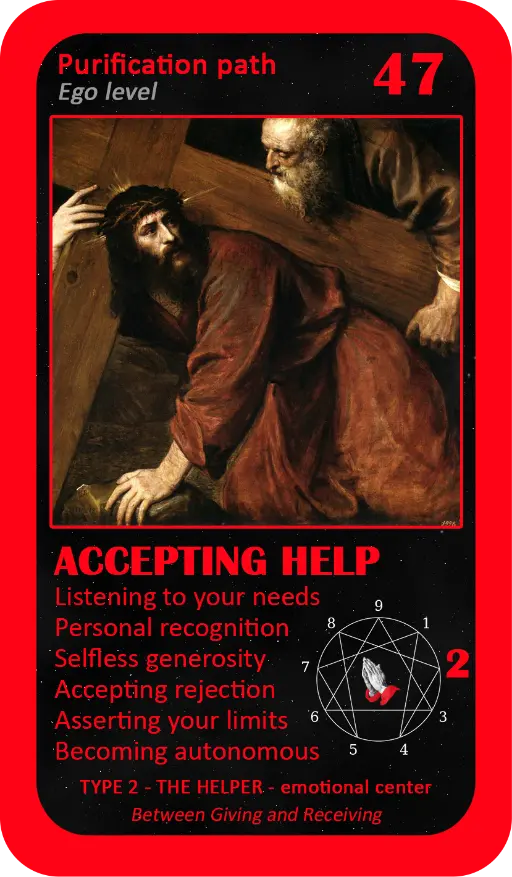
- Express your emotional needs without guilt.
- Care for yourself as much as you care for others, by practicing self-care and learning to accept help from others.
Type 3: The Achiever
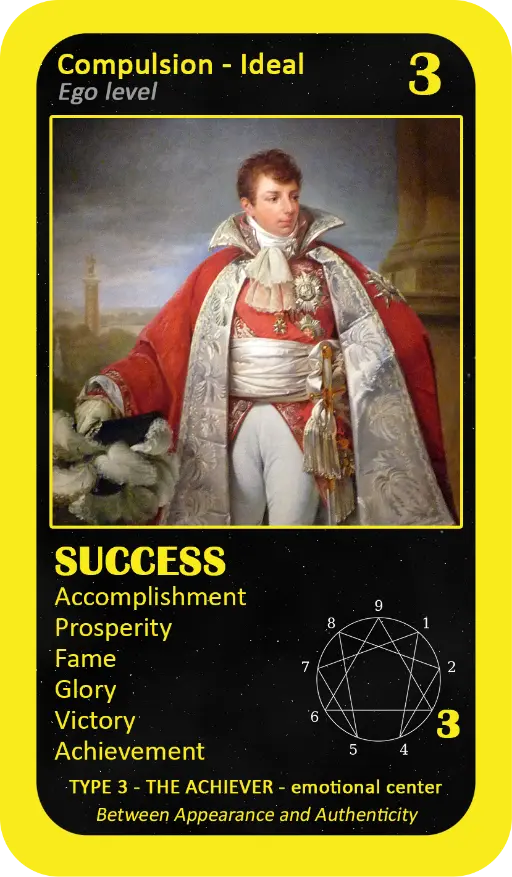
Type 3 is driven by the desire for success and recognition. They manage their emotions by focusing on their goals and protecting their public image.
Emotional Management
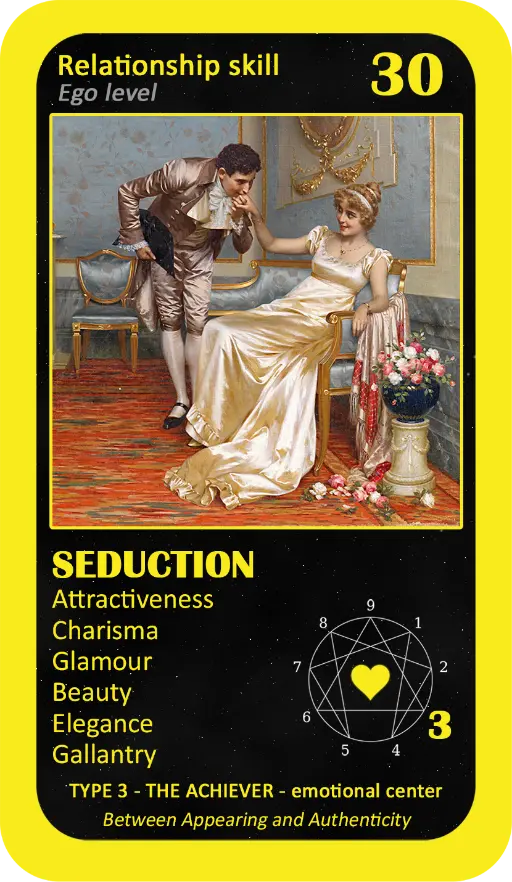
Strengths: Achievers can compartmentalize their emotions, allowing them to stay focused and maintain a positive attitude even during stressful times.
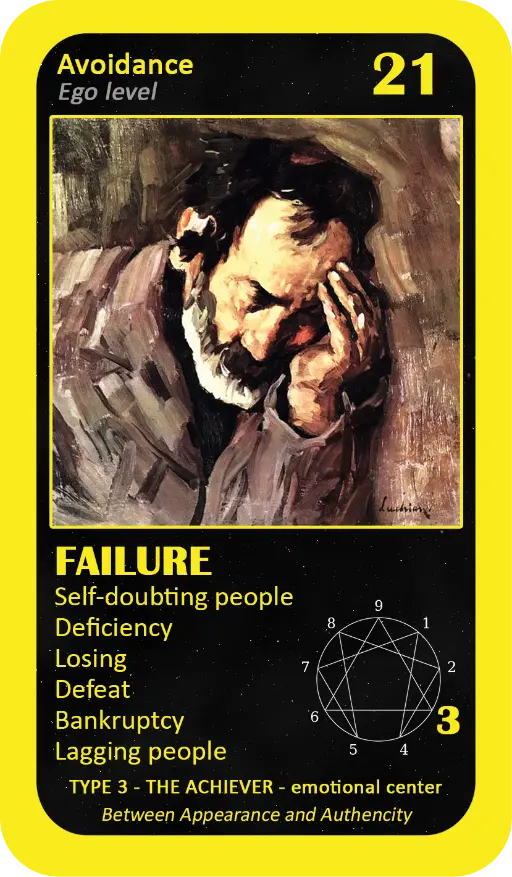
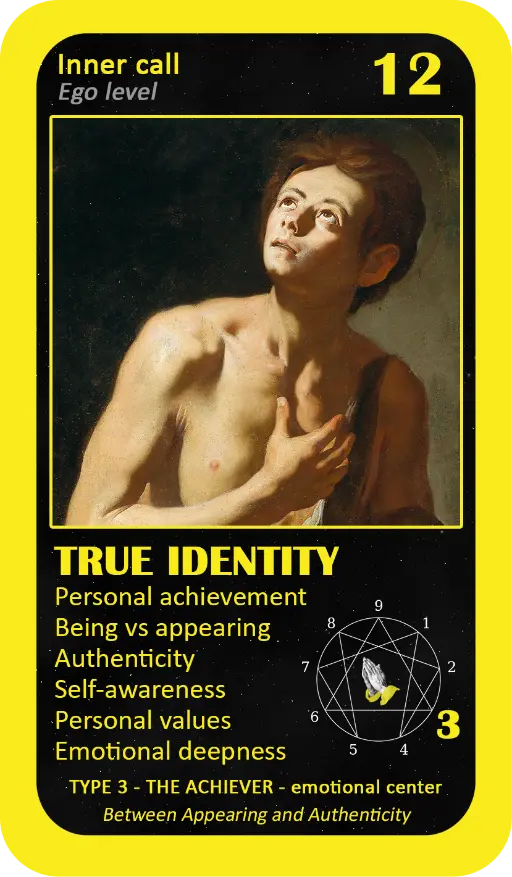
Challenges: They tend to suppress negative emotions, which can disconnect them from their true selves and lead to burnout.
Strategies for Emotional Balance
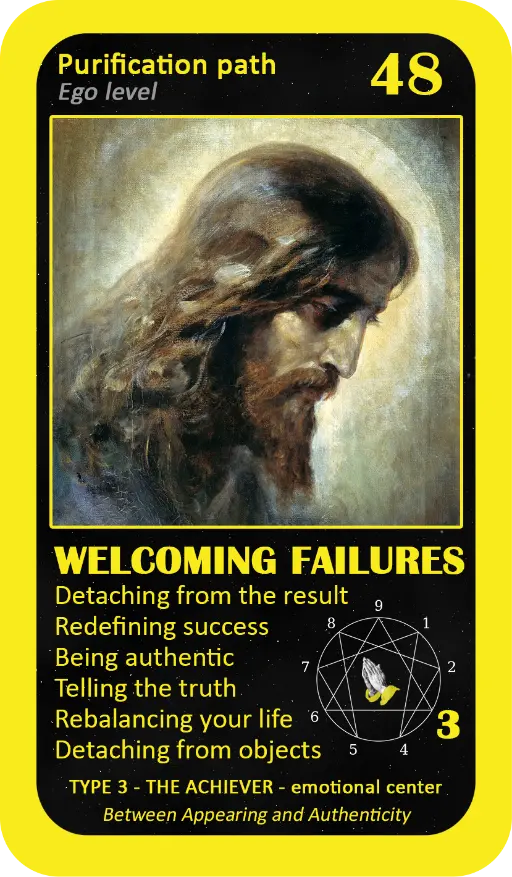
- Acknowledge your emotions, even when they don’t align with your image of success.
- Embrace vulnerability and failure as part of the path to success without diminishing your worth.
Type 4: The Individualist
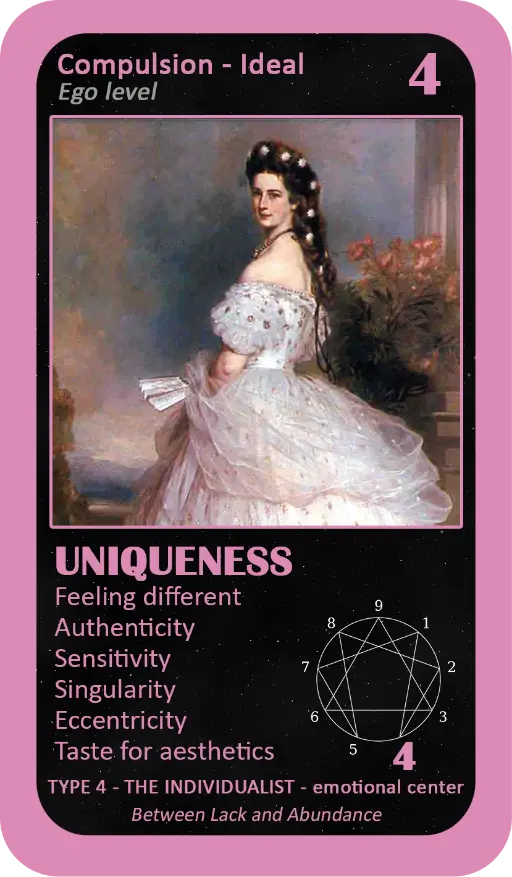
Type 4 individuals are deeply introspective and motivated by a desire to be authentic and unique. They are often in touch with their emotions and seek deeper meaning in life.
Emotional Management
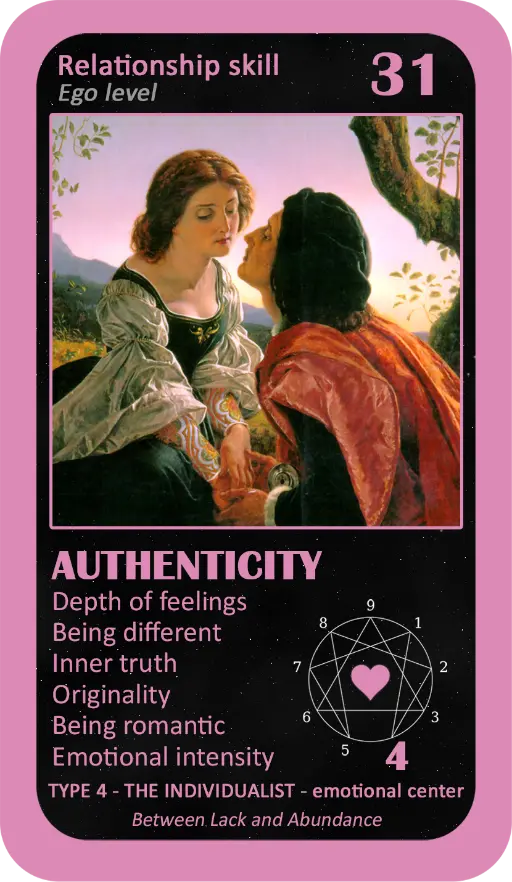
Strengths: Individualists are comfortable with complex emotions and know how to explore them for personal growth.
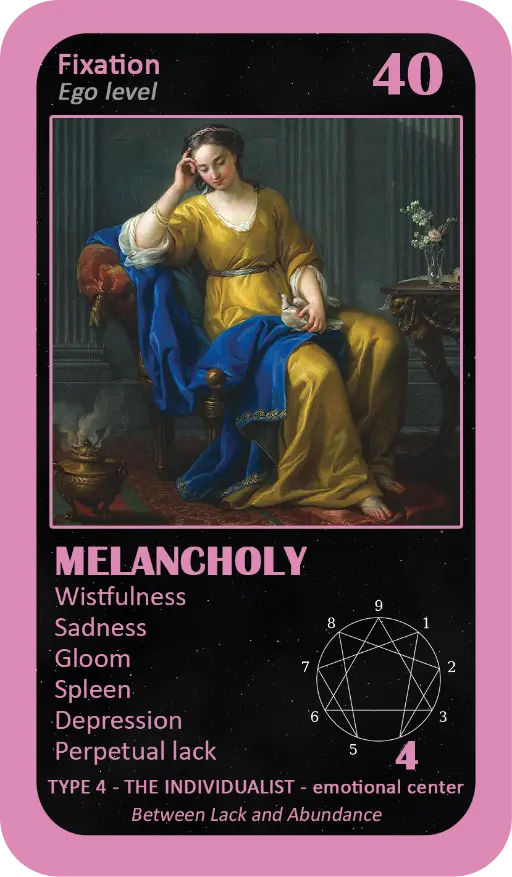
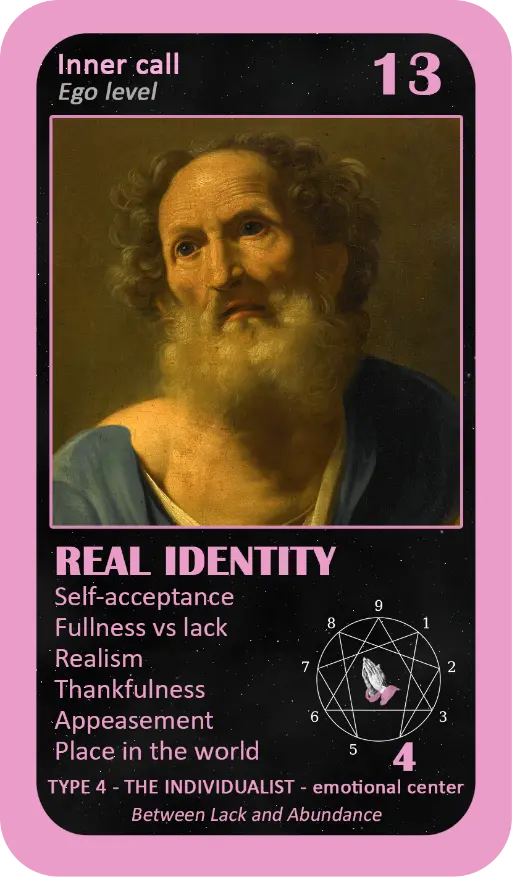
Challenges: They may dwell on negative emotions, leading to cycles of melancholy and comparison.
Strategies for Emotional Balance
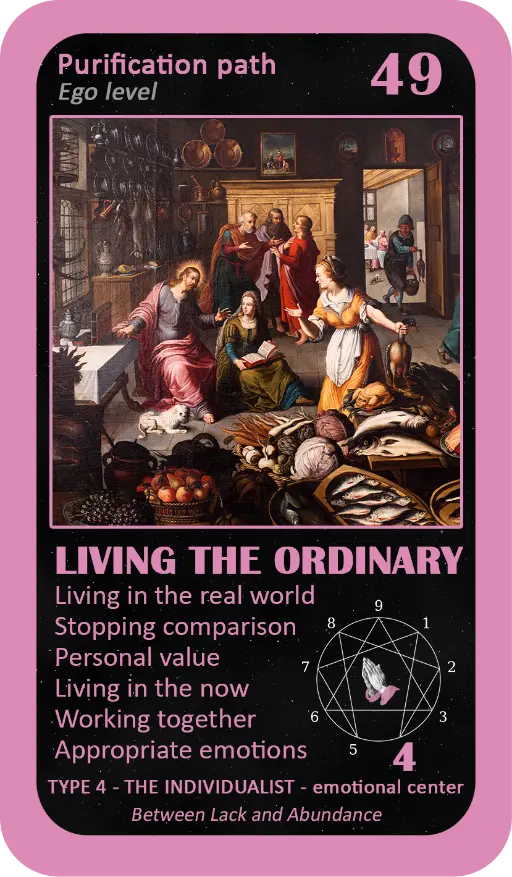
- Focus on the present instead of what’s missing in your life.
- Practice gratitude for the positive aspects of your experiences.
Type 5: The Observer
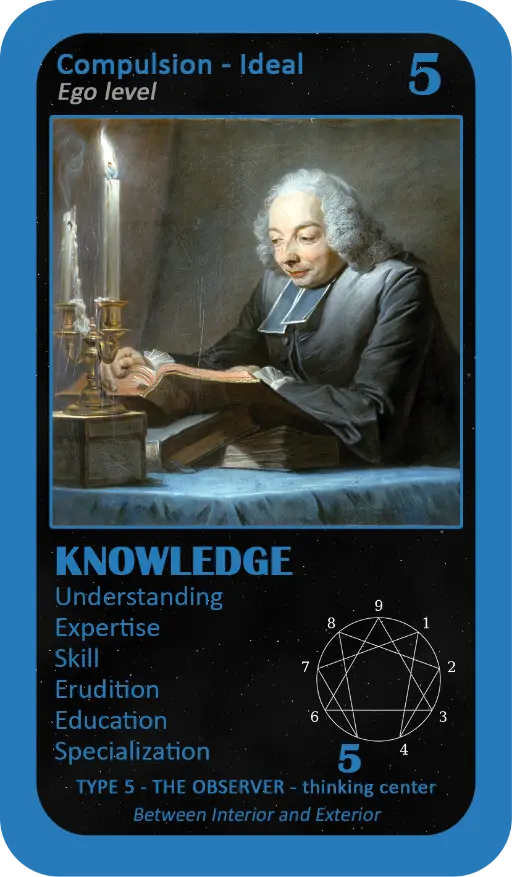
Type 5 individuals are motivated by a need for knowledge and independence. They tend to retreat into themselves to process emotions, often appearing detached.
Emotional Management
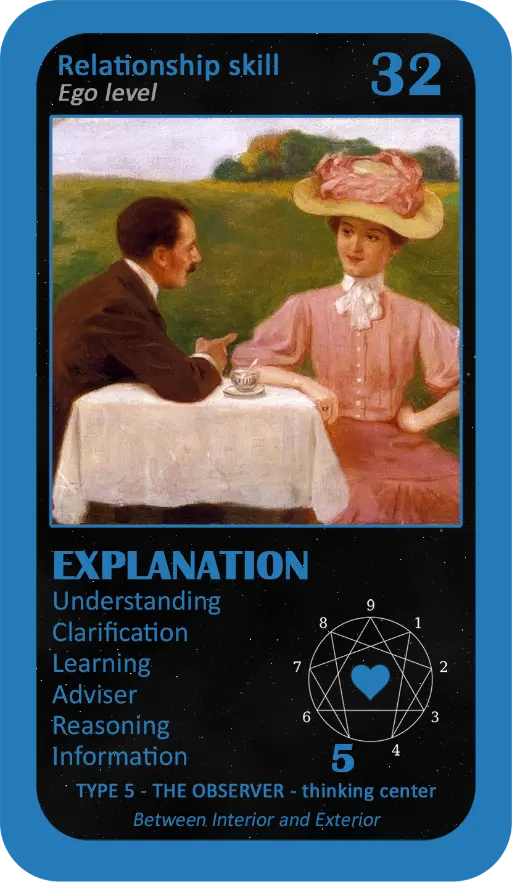
Strengths: Observers are excellent at analyzing their emotions and finding rational solutions to problems.
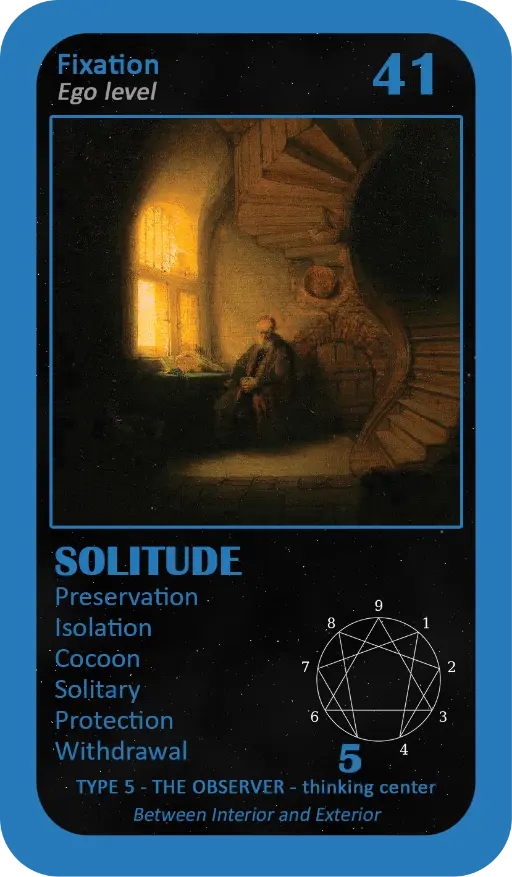
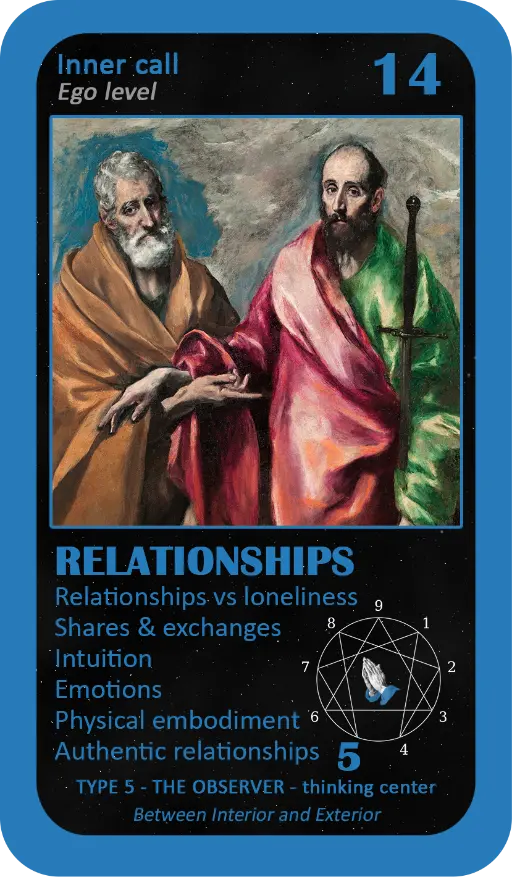
Challenges: They may struggle to express their emotions and connect with others on an emotional level.
Strategies for Emotional Balance
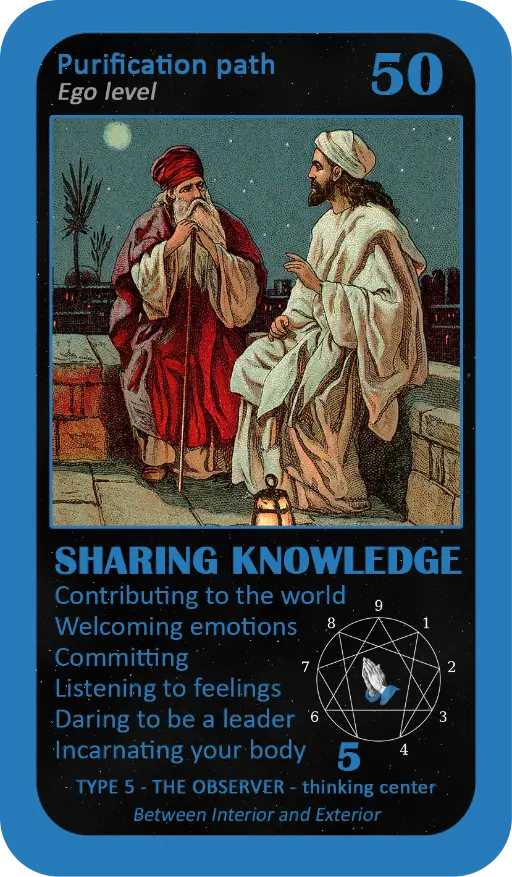
- Learn to express your emotions more openly and connect with others.
- Recharge emotionally without completely isolating yourself.
The Enneagram Oracle
Did you like the cards above? They are part of the Enneagram Oracle.
Would you like to know more about this Oracle? All the info is there!
Type 6: The Loyalist
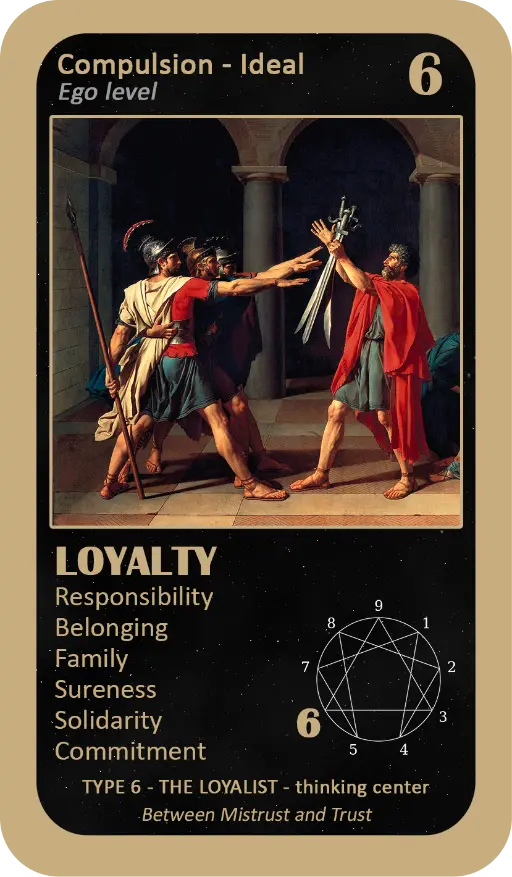
Type 6 individuals are motivated by security and constantly seek stability. They are prone to anxiety and anticipate problems.
Emotional Management
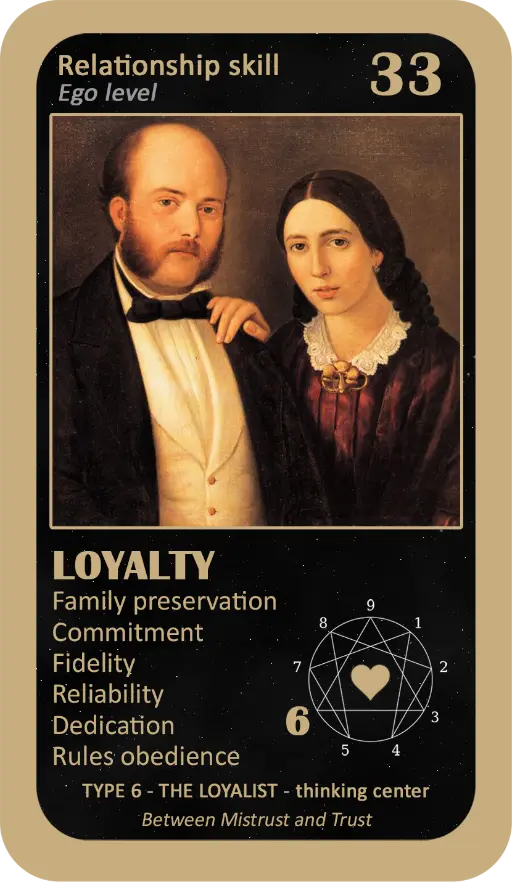
Strengths: Loyalists are good at foreseeing problems and taking preventative measures, which helps them avoid emotional crises. They also are loyal and reliable.
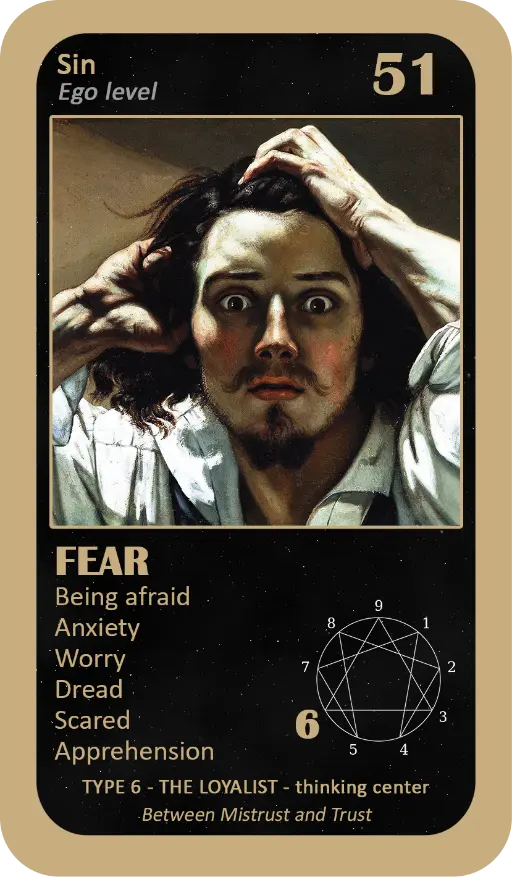
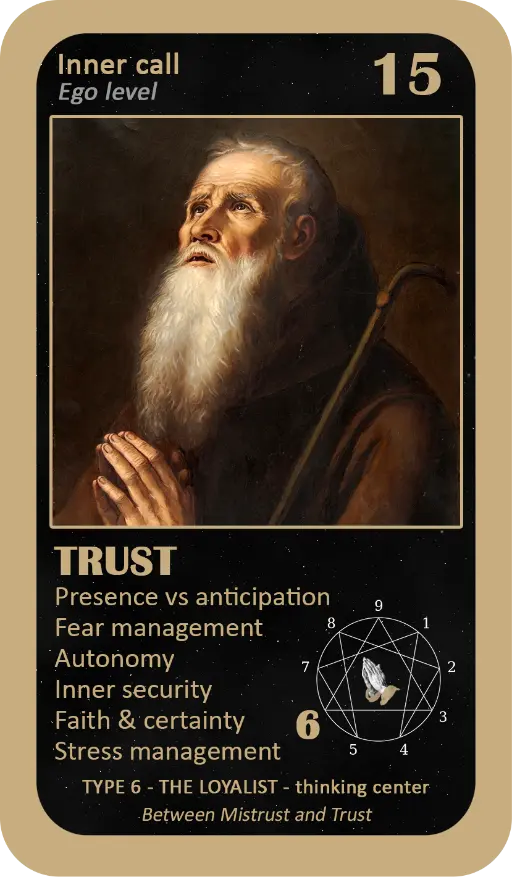
Challenges: Their tendency to ruminate can amplify fears and create feelings of insecurity.
Strategies for Emotional Balance
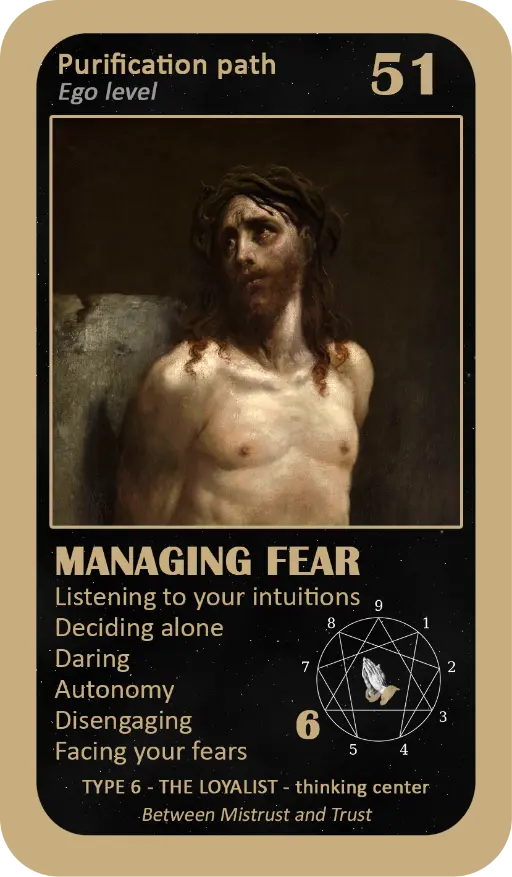
- Accept uncertainty as part of life.
- Practice mindfulness to calm your mind and reduce anxiety.
Type 7: The Enthusiast
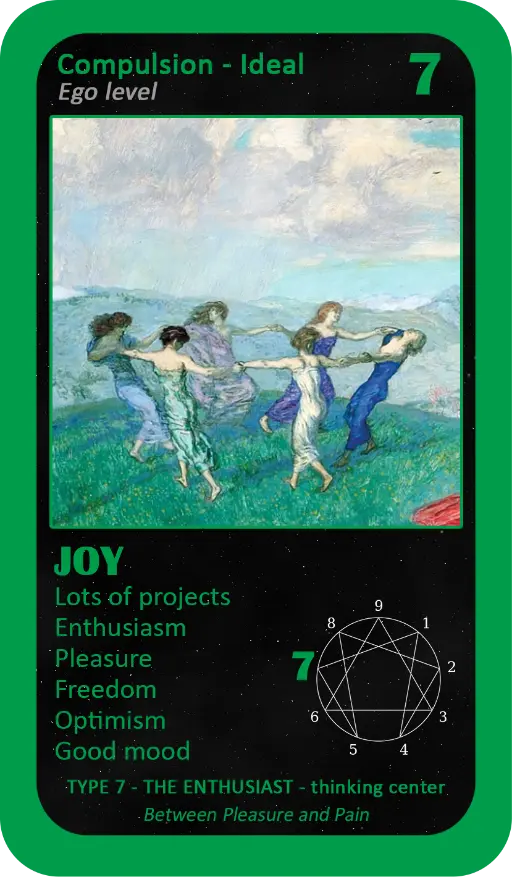
Type 7 seeks to avoid pain by focusing on positive experiences and staying active. They manage emotions by avoiding situations that might cause sadness or frustration.
Emotional Management
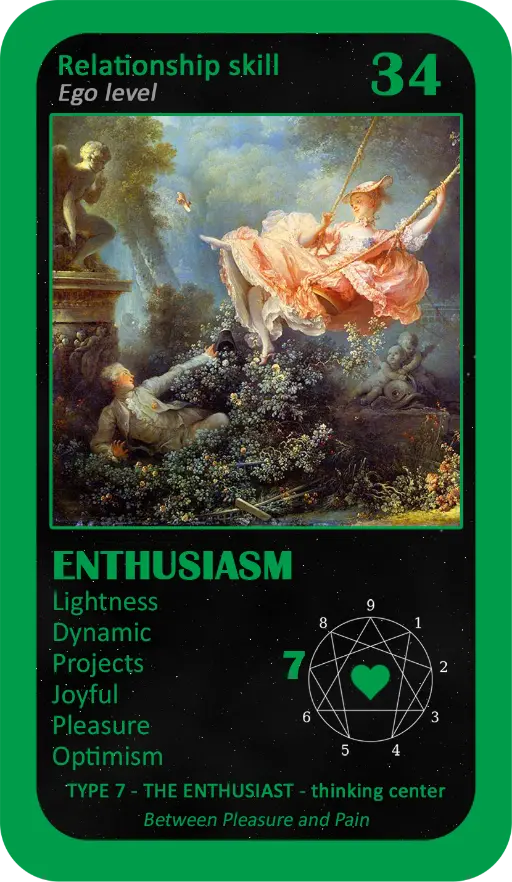
Strengths: Enthusiasts are optimistic and know how to turn difficult situations into opportunities for fun or learning.

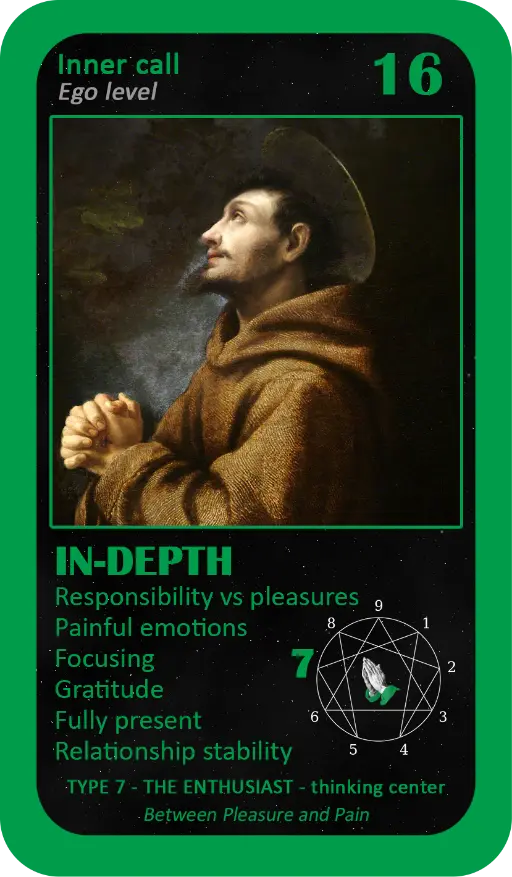
Challenges: They tend to avoid negative emotions, which can prevent them from addressing important issues.
Strategies for Emotional Balance
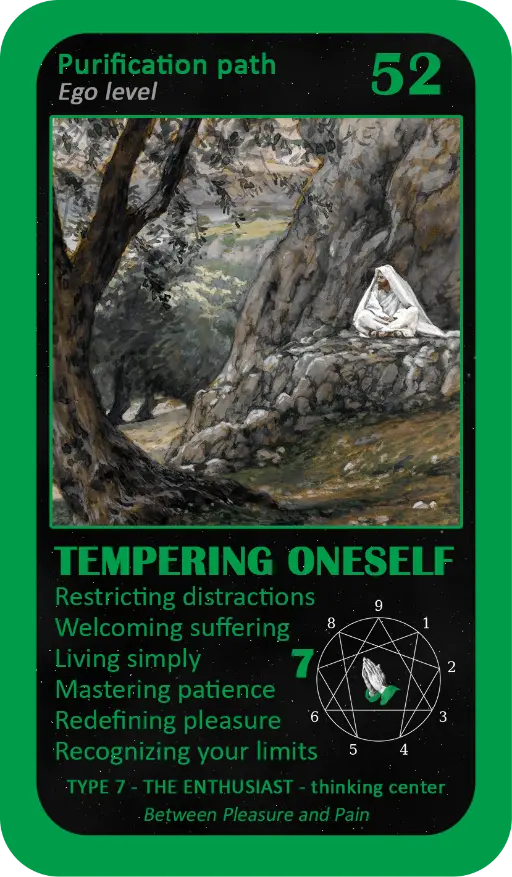
- Face your negative emotions instead of avoiding them.
- Take time to reflect before moving on to the next activity.
The Mystical Enneagram Oracle
Did you like the cards above? They are part of The Mystical Enneagram Oracle.
Would you like to know more about this Oracle? All the info is there!
Type 8: The Challenger
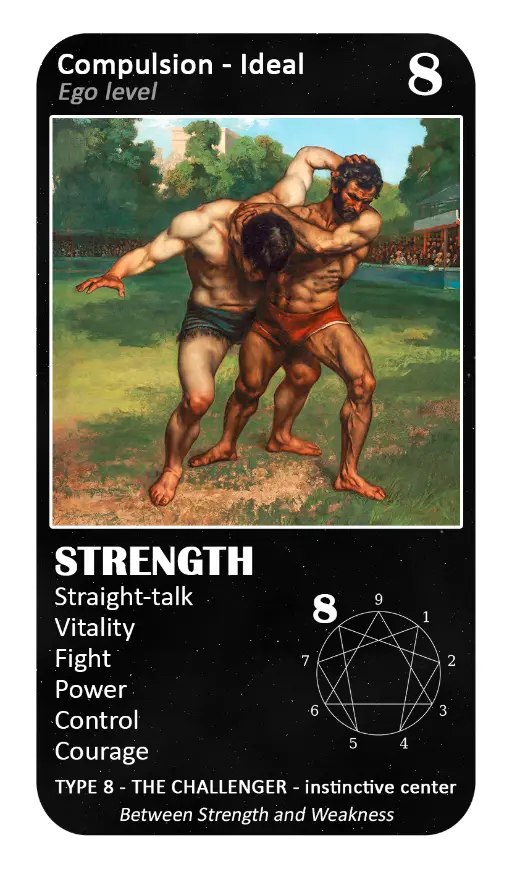
Type 8 individuals are motivated by a desire for control and independence. They are often direct and unafraid to express emotions, especially when they feel threatened.
Emotional Management
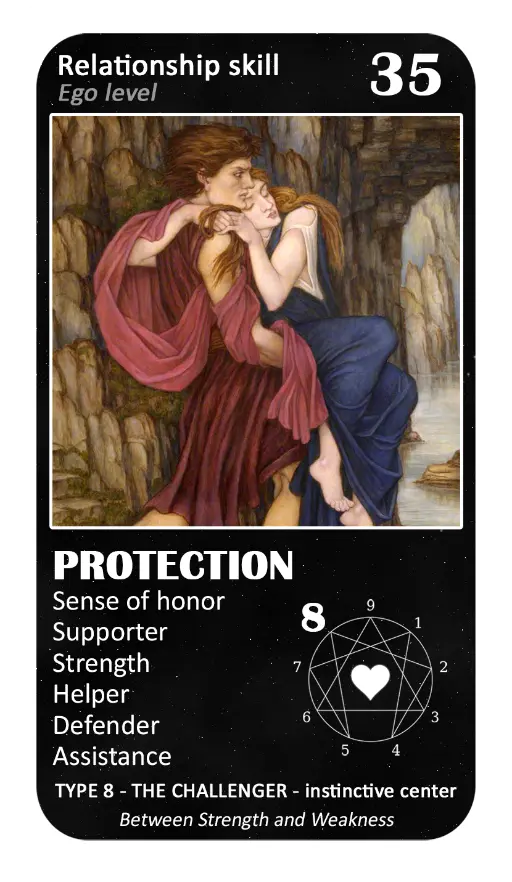
Strengths: Challengers confront difficult emotions proactively, allowing them to maintain a sense of control.
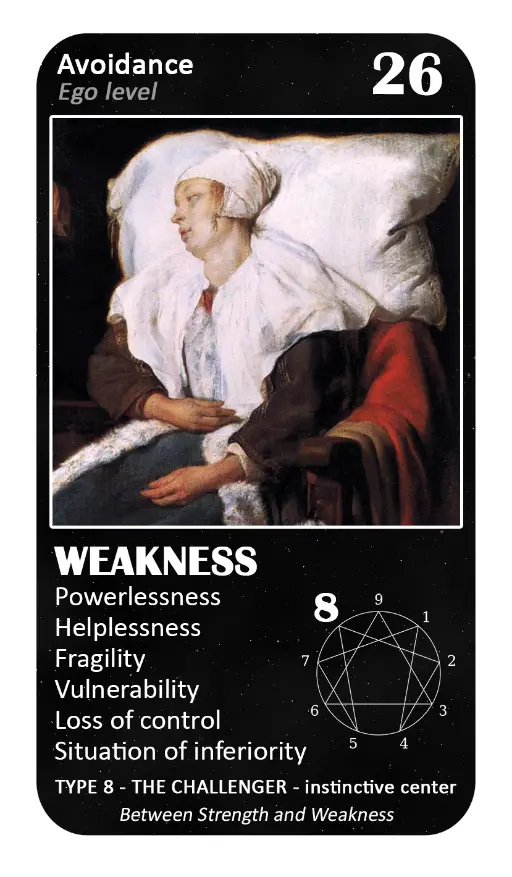
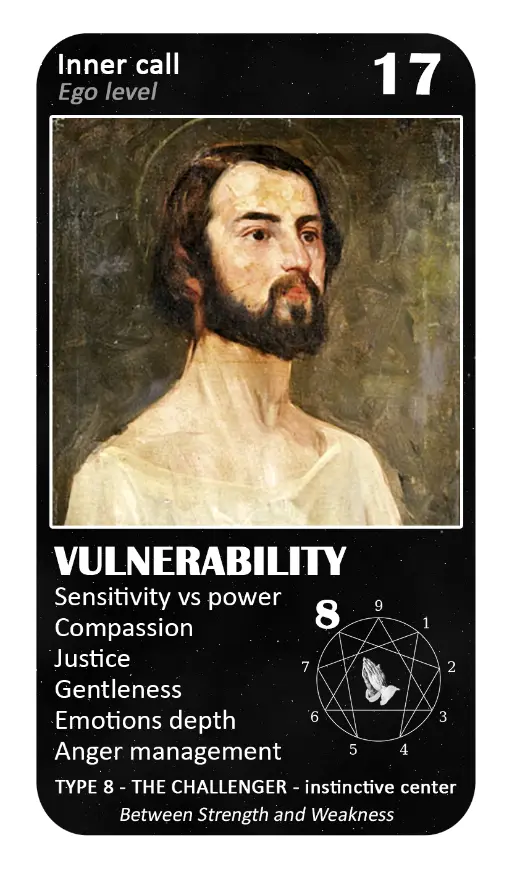
Challenges: Their emotional intensity can be overwhelming for others, and they may struggle to show vulnerability.
Strategies for Emotional Balance

- Balance strength with vulnerability and learn to trust others.
- Take time to reflect before acting on emotional impulses.
Type 9: The Peacemaker
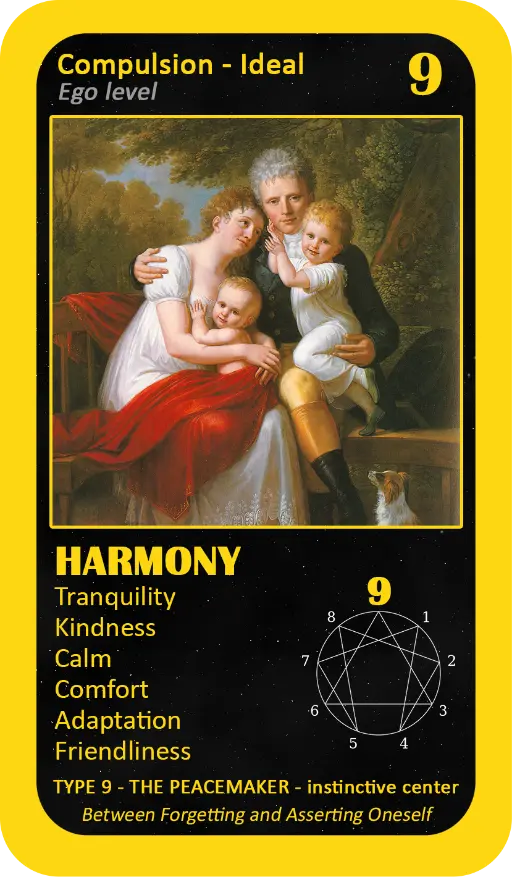
Peacemakers are motivated by a need for harmony and avoiding conflict. They tend to suppress their emotions to maintain peace, often ignoring their own needs.
Emotional Management
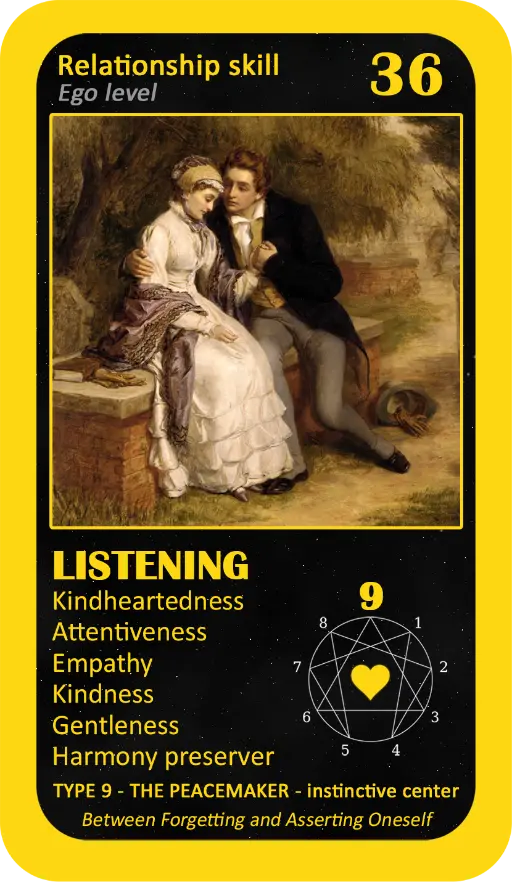
Strengths: Peacemakers are great at defusing tension and remaining calm in stressful situations.
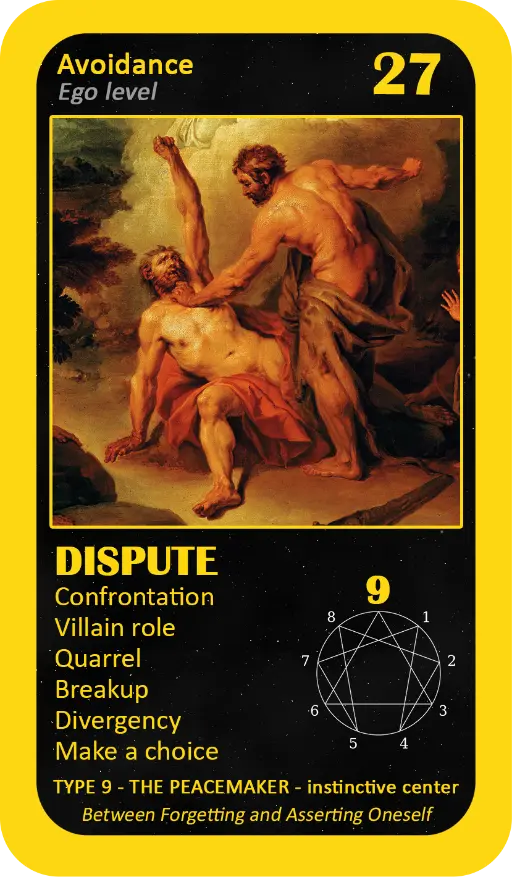
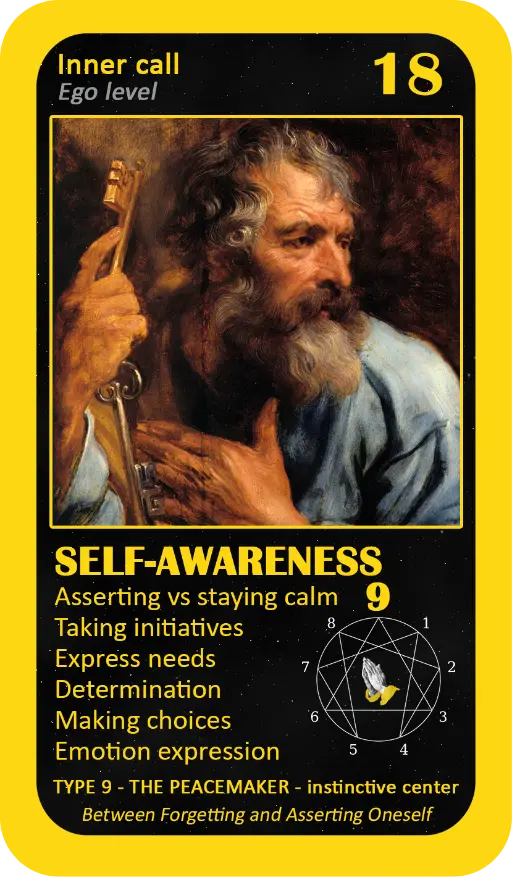
Challenges: Their tendency to avoid conflict can lead to ignoring emotions and building up resentment.
Strategies for Emotional Balance
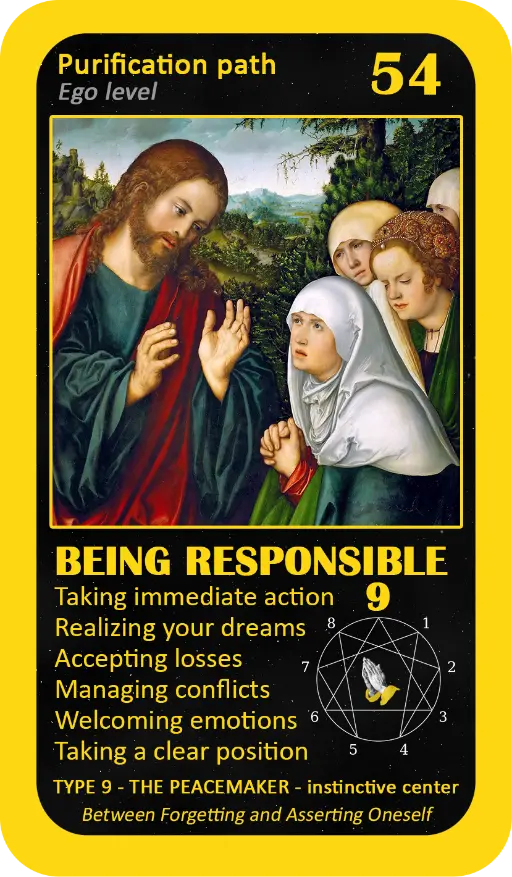
- Express your feelings before they become too heavy to bear.
- Work on resolving conflicts rather than avoiding them.
Conclusion
The Enneagram offers a fascinating window into how each personality type manages emotions. By understanding the emotional strengths and challenges associated with your type, you can better navigate life’s emotional highs and lows. Whether you’re a perfectionist learning to let go or a peacemaker working on expressing your needs, the Enneagram can guide you toward deeper, more lasting emotional balance.
Invest in your emotional well-being by exploring your Enneagram type, and see how this understanding can improve your overall well-being, relationships, and quality of life.
-----
This article was written using artificial intelligence and has been verified, checked and edited by Elena. Did it help you better understand the Enneagram? Please share your thoughts or ask questions in the comments. If you would like to learn more about the Enneagram, check out Elena’s self-published Enneagram Oracles, or download Elena’s free e-book “Introduction to the Enneagram.”












Emotional Balance and the Enneagram: How Each Type Manages Their Emotions